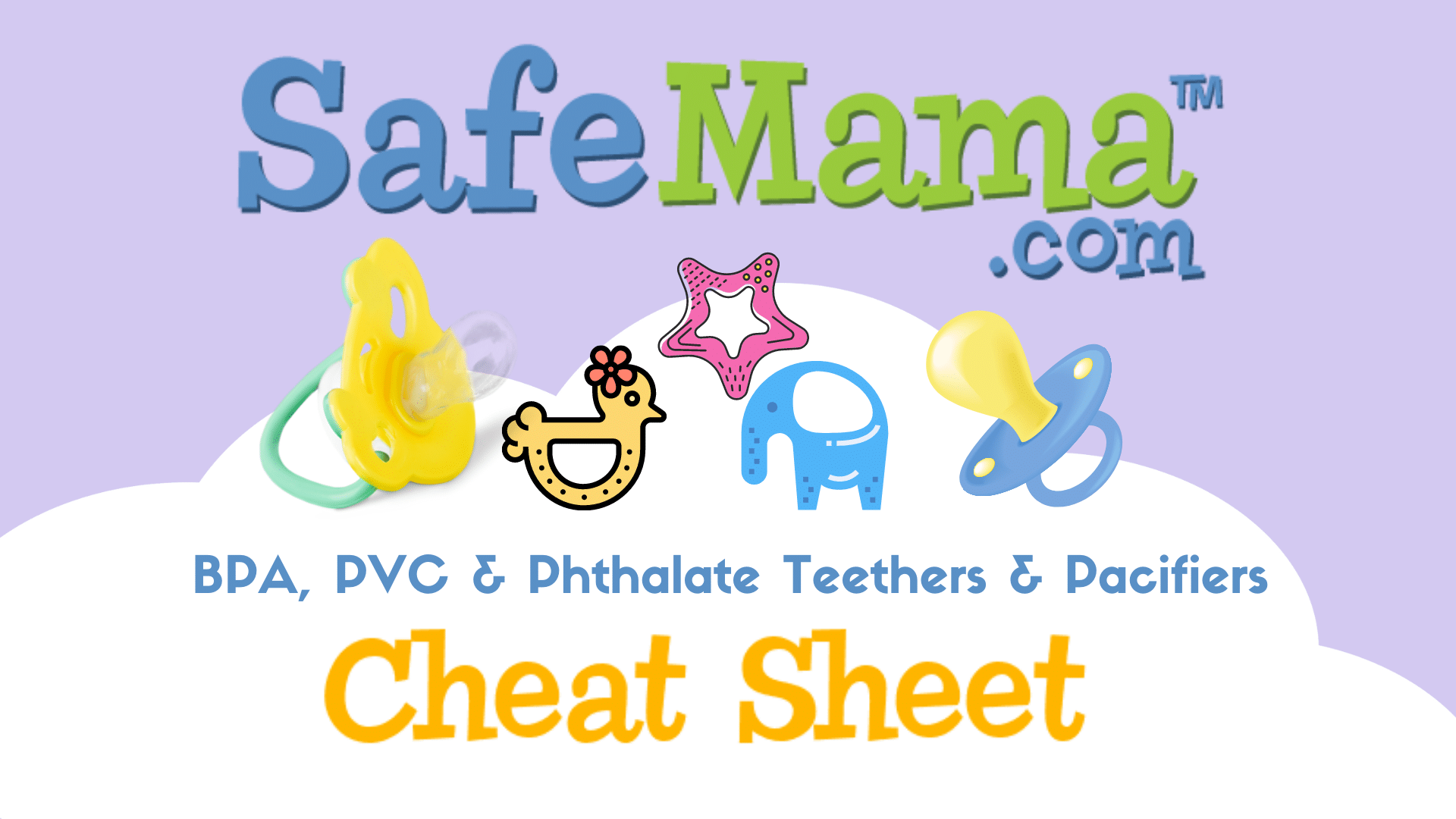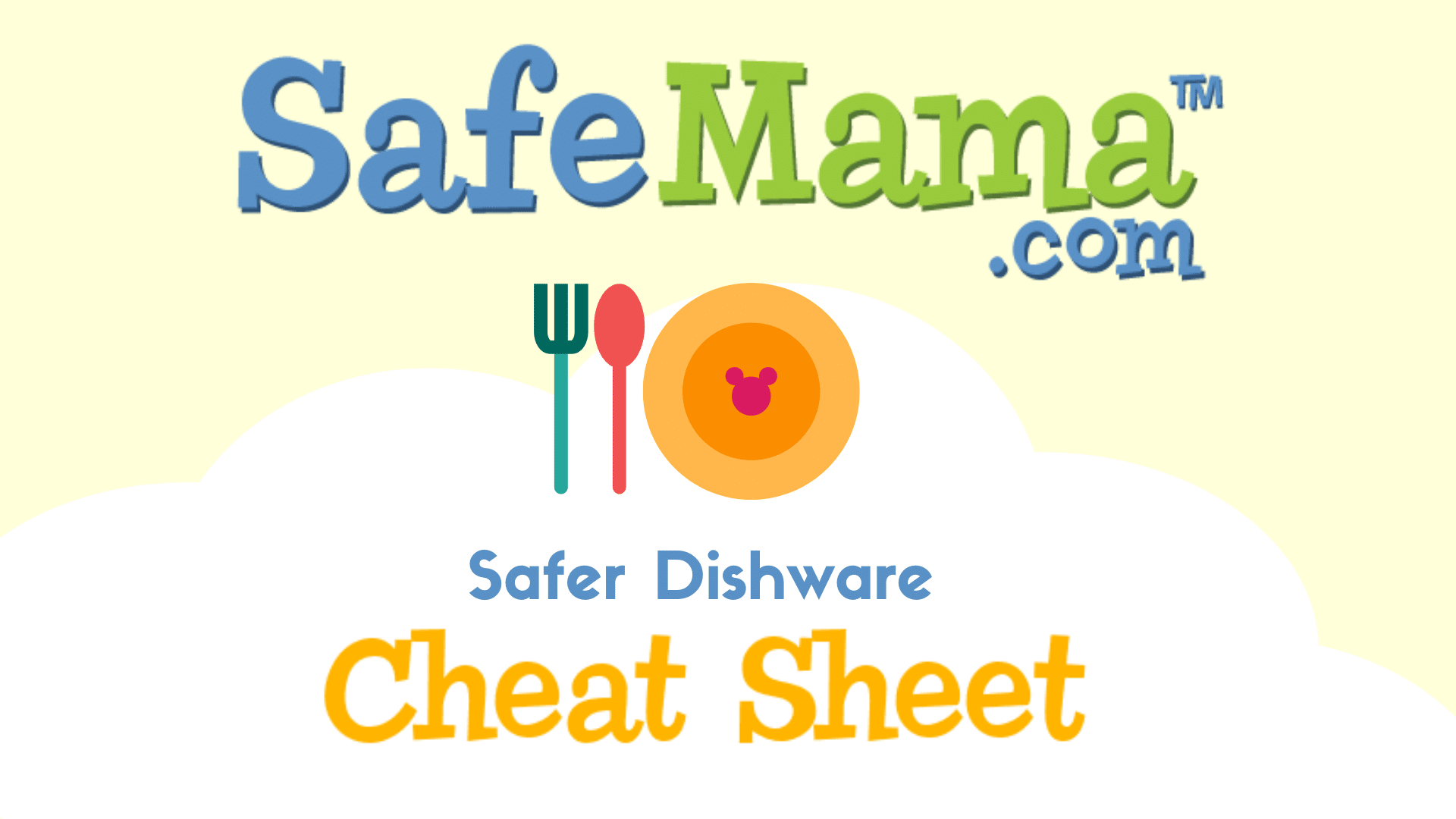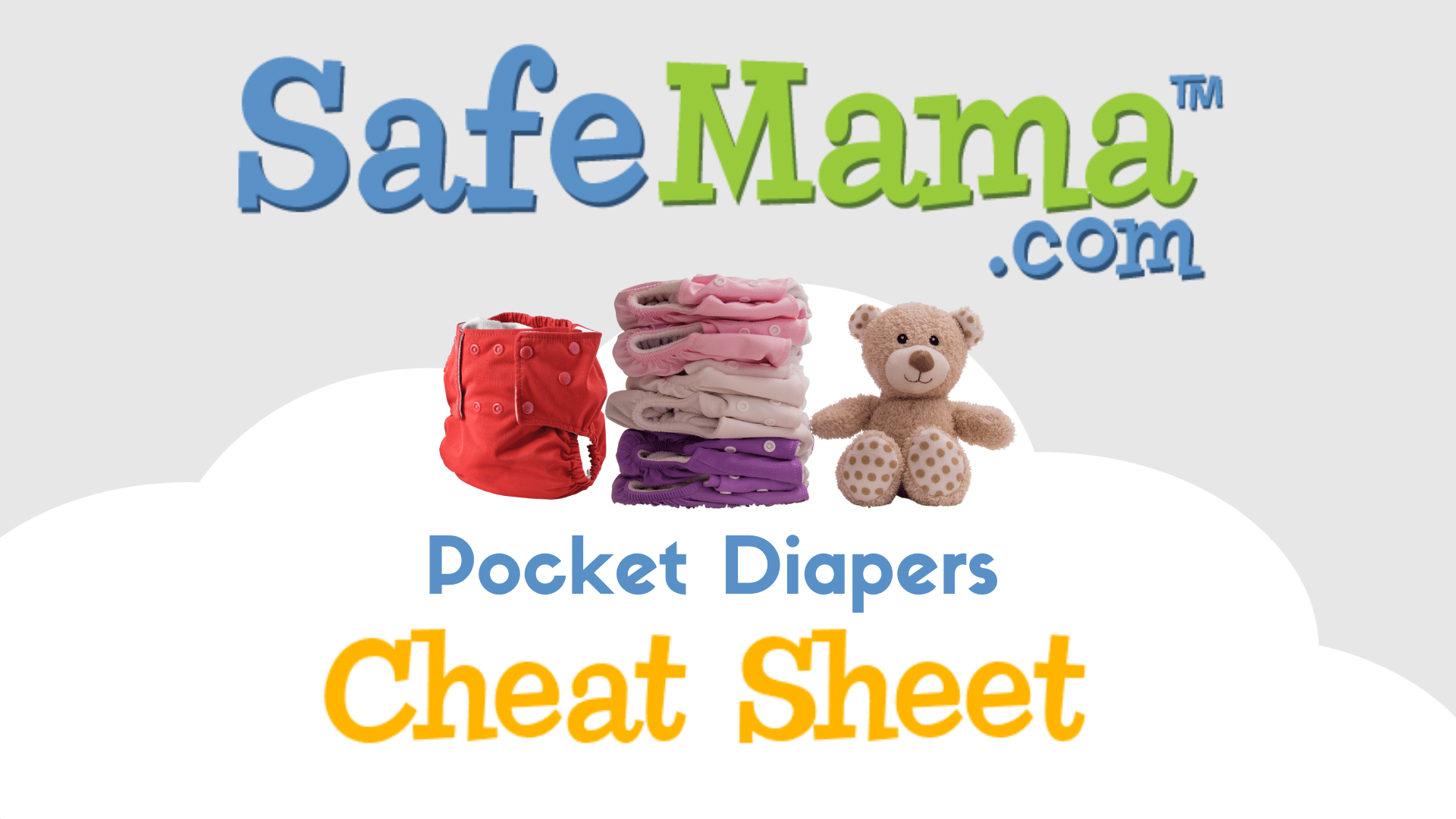Last updated on August 20th, 2022 at 12:09 am
This is a list of BPA Free (also PVC and Phthalate Free) bottles, BPA Free sippy cups and food/milk storage items that I’ve made into a quick reference for those looking for a short list to have on hand when shopping for items for yourself or someone elses kids. If a product you are using is NOT on this list, you should investigate that product with the manufacturer to determine whether or not it contains BPA. Please note: If a product is not on this list it means either it contains BPA or we aren’t aware of it’s BPA status. I am more than happy to add BPA Free products to this list as I find them (or you find them), shoot me an email and I’ll add it in. Thanks!
BPA Free Bottle Products
- Avent: “Via” Feeding System, Tempo Liners, Avent PES Bottles ***see note
- BornFree: All bottles and cups BPA free *see note
- Babisil Silbottles
- Coddletime Glass Bottles
- Dr Brown’s: Glass Bottles, Dr. Browns Polypropylene Bottles (all vent system pieces BPA Free – made with polypropylene – and fit all models)
- EvenFlo: Classic™ Glass Bottles, Classic™ Light Tint Polypropylene bottles, Classic™ Clear Polypropylene Bottles, Purely Comfi™ Bottles
- First Year’s BreastFlow and Soothie Starter Sets (marked BPA Free)
- Green to Grow Bottles **see note
- Gerber: Gerber Clear View, Fashion Tints (“Plastic Pastels”), Gerber GentleFlow
- Innobaby Nursin’ Silicone Bottles, Natural Nurser, Training Bottles, Spoon Feeders
- Lansinoh® Bottles (all)
- Safety Plus PES Bottles
- Sassy: MAM bottles (UltiVent), Baby Food Nurser Kit
- ThinkBaby Bottles
- Tommee Tippee – BPA-free baby bottles and other baby products from UK manufacturer – now available in the US
- Momo Glass Bottles
- Medela: All bottles
- Milk Bank Bottles and Vacuum Storage Systems
- Munchkin: Mighty Grip Glass Bottles
- Nuby: Standard Neck Non-Drip Bottle, Wide-Neck Non-Drip Bottle, Wide-Neck Bottle with Handles and Non-Drip Nipple, Standard Neck Bottle with Handles and Non-Drip Nipple, 3-Stage Wide Neck Easy Grip Feeding System with Non-Drip Nipple, Natural Touch SoftFlex InfaFeeder (silicone)
- NUK: Nuk Orthodontic Bottles
- Parent’s Choice Bottles (available at Walmart) – box is marked BPA Free
- Playtex: Original Nurser, Playtex Drop-in liners, Ventaire Advanced Bottles (marked BPA Free)
- Lifefactory Glass Bottles
- ZoLi Wideneck Bottles
BPA Free Sippy Cups / Water Bottles
- Avent: Magic Cups, Magic Cup Sportster, Super Sport Cups
- BornFree Sippy/drinking cups, Stainless Steel water bottles
- Camelbak Kids Water Bottles
- Crocodile Creek Stainless Steel Water Bottles
- Dr. Brown’s BPA Free Training Cup
- Playtex: Coolster Tumbler, Insulator, Sipster, Create My Own, Quick Straw, Insulator Sport, Sip and Discover, First Sipster
- Gerber: Sip & Smile Spill-proof Cup, Easy Grip Insulated Soft Straw Cup, Insulated Cool Cup, Gerber® Fun Grips® Cup, Gerber® Fun Grips® Color Change Cup, Grins & Giggles Spill-proof Cup, Gerber® Sip & Smile™ Cup
- Evenflo: Fun Sip Insulated Spill-proof Cup, Fun Sip Insulated Straw Cup, Evenflo Zoo Friend Sippy Cups
- Klean Kanteen: All bottles
- Kinderville Silicone Cups
- Thermos Foogo Sippy Cups, FUNtainer Straw Bottles, BPA Free Tritan Sippy
- Boon Sippy
- Green Sprouts Trainer Bottles, Sippy Cups (regular and non-spill)
- ThinkBaby Training Cup, ThinkSport Stainless Bottle (cute!)
- Munchkin: Cupsicle, Cupsicle Straw Cup, Big Kid Sippy Cup, Mighty Grip Flip Straw Cup, Mighty Grip Trainer Cup, licensed character Sports Bottles, Re-usable Straw Cups, Re-usable Spill-proof Cups
- Nuby: No-Spill Sports Sipper, Insulated Soft Silicone Spout Cup, Soft Spout Easy Grip Cup, Gripper Cup with Soft Silicone Spout, 2-Handle Cup, Tinted Mega Sipper, 7oz Tumblers, Magic Cups Insulated Hologram Cup (straw and spout), Insulated Sipper Cups (with and without handles)
- NUK: Nuk Learner Cup (Silicone & Latex), EZ Cup, Active Cup, Graduates Fun Grips Soft Starter Cup, Graduates Fun Grips Cup, Graduates Sip & Smile Soft Spout Cup, Graduates Sip & Smile Cup, Graduates Sip & Smile Insulated Cup, Graduates Cool Twisties Straw Cup
- The First Years: Take & Toss, Spill-proof Cup, Insulated Cup, Licensed character sippy cups, Insulated Spill-proof Cup, 2 Handled Cups. Mealmates 10oz Soft Spout Cups
- ZoLi Straw Sippy Cups
BPA Free Milk/Liquid/Powder Storage
- Avent Via 8-oz. Nurser Kit
- Avent Snack Cup / Formula Dispenser
- Avent PES Breastmilk Storage sets
- Mother’s Milkmate Storage bottles
- Medela Milk Storage bottles and breast pump accessories
- Playtex One-Step Breast Milk Storage Kit
- Lansinoh® Breastmilk Storage Bags
- Lansinoh® Breastmilk Storage Bottles
- Gerber Breastmilk Storage Bags
- Dr. Brown’s Breastmilk Storage Bags
- The First Years Easy Pour Breastmilk Storage bags
- Milk Bank Vacuum Storage Systems
- MilkMate Storage Systems
- NUK Store n Go Breastmilk Storage Bottles, Seal n Go Storage Bags
- ZoLi on-the-go Travel Formula & Snack Dispenser
BPA Free Baby Food / Food Storage
- So Easy Fresh Baby Food Kit
- Baby Cubes baby food storage system
- Boon Snack Ball
- Thermos Foodtainer
- Innobaby Packin’ Smart Stack n’ Seal, Keepin’ Fresh (others may contain BPA)
- BornFree Thermal Food Jar
- Munchkin: Snack Catcher, Baby Food Grinder, Fresh Food Feeder, Powdered Formula Dispensers
- The Snack Trap
- BeaBa BabyCook
- ZoLi on-the-go Travel Formula & Snack Dispenser
See our new Safer Dishware Cheat Sheet for more options as well as our BPA Free Baby Food & Storage Cheat Sheet!
BPA-Free Breast Pumps
- Ameda Breast Pumps and Accessories
- Avent Isis, Avent Isis iQ (Uno, Duo)
- Medela Breast Pumps
- NUK Gentle Flow Manual Breast Pump
IMPORTANT: Please do not copy/paste this material on other websites without prior written consent. This page is constantly being updated so republishing it could mean you are distributing inaccurate information. Copying and/or republishing this list or any written material from this website is also a violation of our Terms and Conditions.
What is Bisphenol A?
Bisphenol A is a hormone-mimicking chemical used in polycarbonate plastics (PC or identified as #7 recycling code) and resins commonly used for items such as shatterproof baby bottles. Bisphenol has estrogenic properties which, in animal tests has shown to cause a bevy of health problems such as an increase in prostate and breast cancer, urogenital abnormalities in male babies, a decline in semen quality in men, early onset of puberty in girls, metabolic disorders including insulin-resistant (Type 2) diabetes and obesity and neurobehavioral problems such as Attention Deficit Hyperactivity Disorder. Research is showing that when plastic containers, mostly those used to hold liquids and foods, are leeching Bisphenol into the foods and liquids they are holding. Heating food and liquids with these plastics is shown to increase the leaching of this contamination.
Many companies use this chemical in their packaging including cans, soda cans, and plastic food containers. There is a risk of absorbing this chemical through the use of containing foods and liquids but can also leech into our water systems through landfills.
Many leading experts and the FDA argue that the use of Bisphenol-a is safe to the human public but independent research HAS proven otherwise.
Excerpt from Wikipedia:
“Bisphenol A has been known to leach from the plastic lining of canned foods and, to a lesser degree, polycarbonate plastics that are cleaned with harsh detergents or used to contain acidic or high-temperature liquids.[16] Infants fed with liquid infant formula have among the highest exposures of anyone eating canned foods. Infants fed canned formula with polycarbonate bottles can consume quantities of Bisphenol A up to 13 µg/kg/day.”
Links and Resources:
- SafeMama BPA Free Teether & Pacifier Cheat Sheet
- SafeMama Safer Dishware Cheat Sheet
- BPA in Baby Formula



